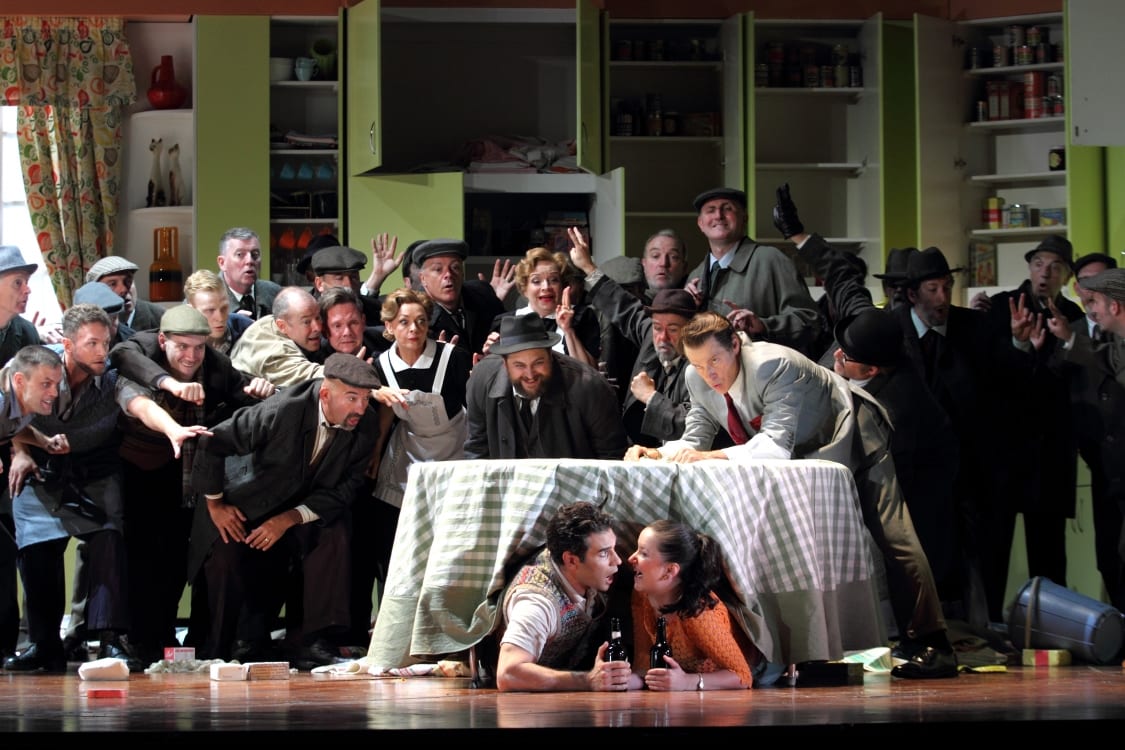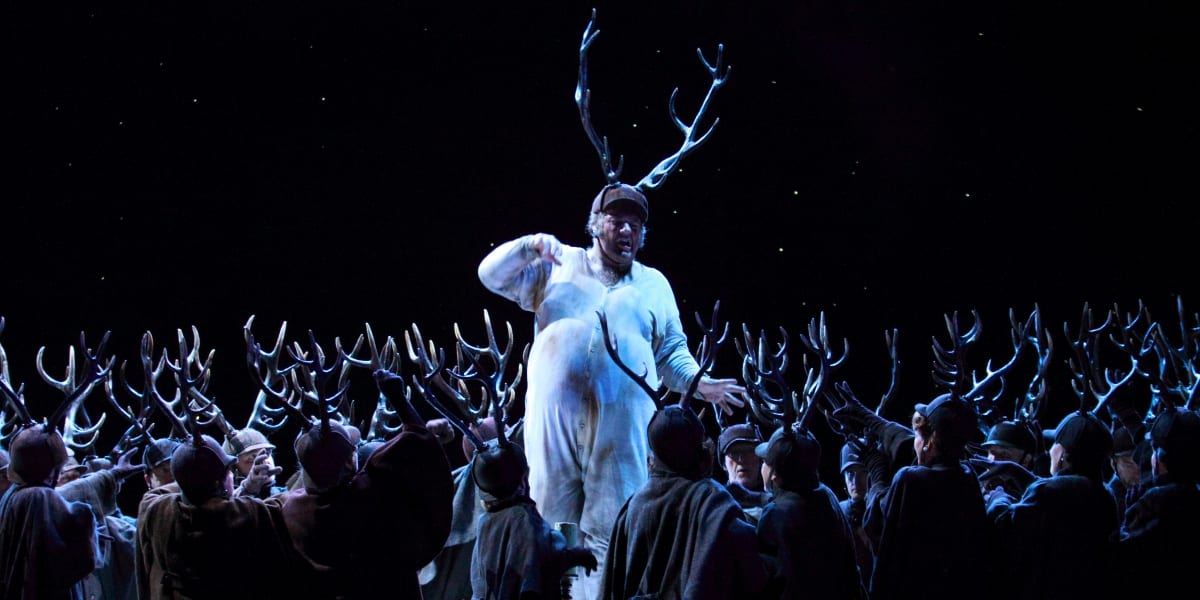Verdi’s last opera is a two-fold miracle – of both economy and prodigality. He started with the advantage of Boito’s superb libretto which strengthens ‘The Merry Wives of Windsor’, hardly Shakespeare’s finest work, with some of the most memorable speeches from the Henry IV plays. But it is wholly the octogenarian composer’s achievement to have compiled one scene after another in which crisp and concise matching of music to mood goes alongside apparently seamless and generous melodic invention – superb lyric and comic inspirations flash past leaving you longing for a repetition.

However, a work as technically demanding as this, especially in the ensemble writing, often fails to come off in the theatre through lack of rehearsal time and a failure on the part of the director’s invention to match Verdi and Boito’s inspiration . For the greater part Robert Carsen’s team avoid these perils and deliver a production worthy of the original.
As the over-sized and over-sexed aged knight of the title, Bryn Terfel reprises a role that he has made his own in recent years. Fully equal to the rambunctious moments of broad comedy, he also serves up some pared-down episodes of rare delicacy and wry self-knowledge, which add layers to his characterisation. He is also a memorably mobile and nimble-footed Falstaff despite the fat-suit encasing him. He is well matched by Simon Keenlyside as Ford, the nearly-cuckolded husband. In a welcome return to vocal health his fierce rendition of the famous ‘jealousy’ aria serves as a reminder of Verdi’s handling of these obsessive themes only a few years earlier in ‘Otello’. There is good comic relief and broad humour from Michael Colvin and Craig Colclough as Falstaff’s rogueish side-kicks, Bardolph and Pistol; and Frédéric Antoun delivers a lyrical and passionate performance as the young lover, Fenton.
Among the ‘Merry Wives’ themselves there is a nicely tight ensemble and a lot of individual character. Pick of the bunch is Marie-Nicole Lemieux as Mistress Quickly, with many delightful comic interventions, especially in her mock reverential exchanges with Terfel. Ana Maria Martínez as Alice Ford, the main object of Falstaff’s attentions, is fully on top of the arch humour and intrigue in her role but could have made more of its lyrical moments. Marie McLaughlin’s part as Meg is somewhat underwritten by Verdi, but she makes the most of it; and Anna Prohaska is very convincing as the sulky teenager Nanetta before floating an ethereal soprano line in her main aria in the final scene.
Great credit belongs to the house orchestra and chorus, conducted by Nicola Luisotti. Speeds are brisk, as they need to be, when the interval is not taken until the end of Act Two; but there is always a supremely confident sharpness of ensemble with wide dynamic contrasts and filigree solo instrumental detail especially in the final nocturnal scene set in Windsor Forest. There was also finely observed coordination between the orchestral interludes and postludes and the acting on stage, which energised both to advantage.

Carsen’s production, first seen in 2012, takes the setting into the 1950s, the era of the second Elizabeth, and highlights the themes of hunting and delight in food (though in an era of post-war rationing, is this entirely plausible?). There is also an intriguingly implied class tension between Falstaff as a representative of a decayed aristocracy and an upwardly mobile middle class. Paul Steinberg’s beautiful and flexible all-wood set takes us to a world of country house hotels, gentleman’s clubs, and baronial halls on the one-hand and a showy over-stocked Formica-clad kitchen, on the other. We even have a scene set in a stable with a genuine shire horse keeping Falstaff company as he recovers his poise after his dunking in the Thames. Where it falls fractionally short is in the final scene, which never finds a way of capturing the much-needed combination of fairy magic and edgy cruelty before jocular reconciliation. Indeed few productions ever do.
This is a most accomplished and entertaining evening, with technical expertise of a very high class and artistic aspirations that mostly succeed.

